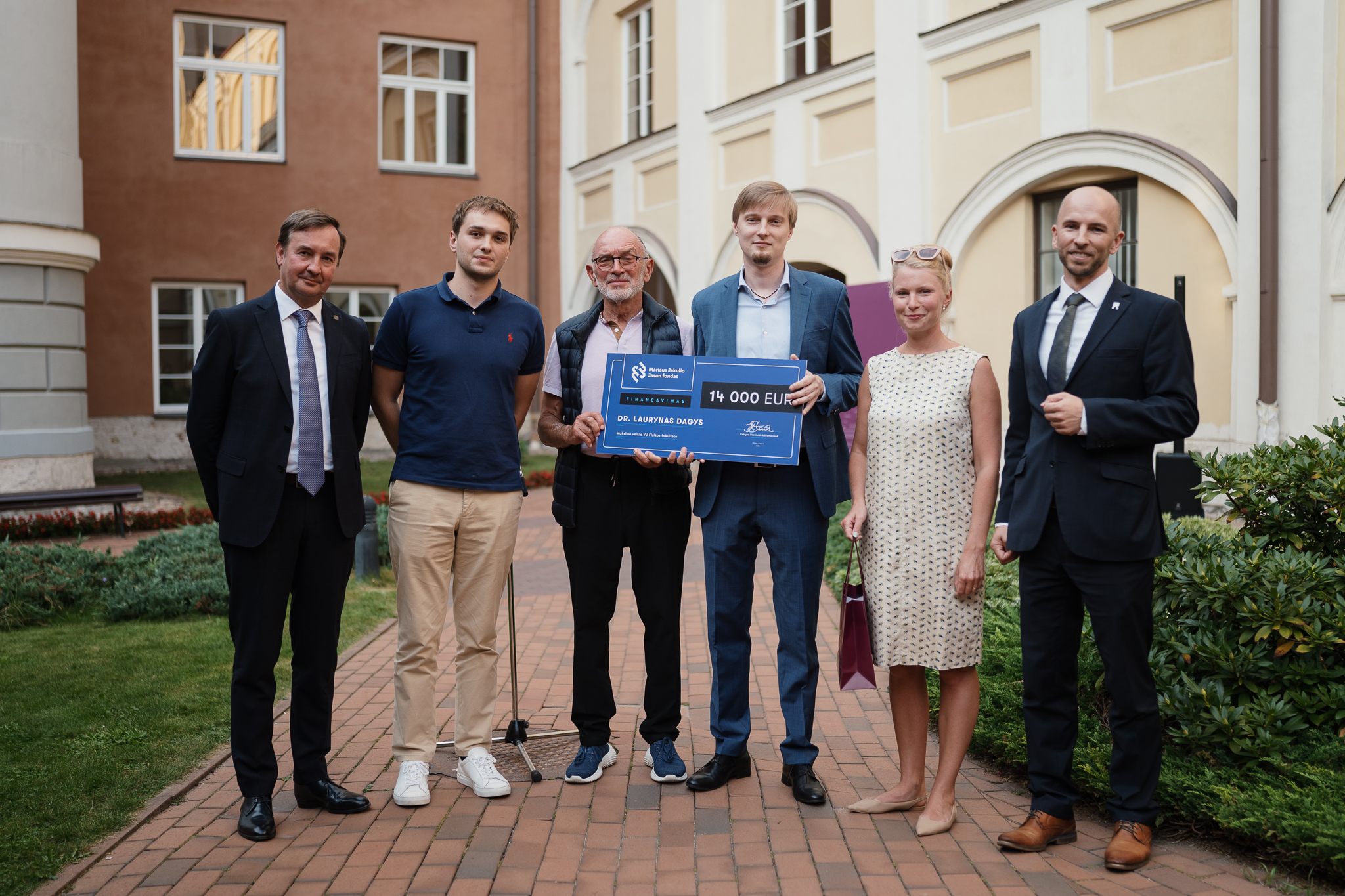Organisations
- Mariaus Jakulio Jason (MJJ) fondas
- Vilnius University Foundation (endowment return)
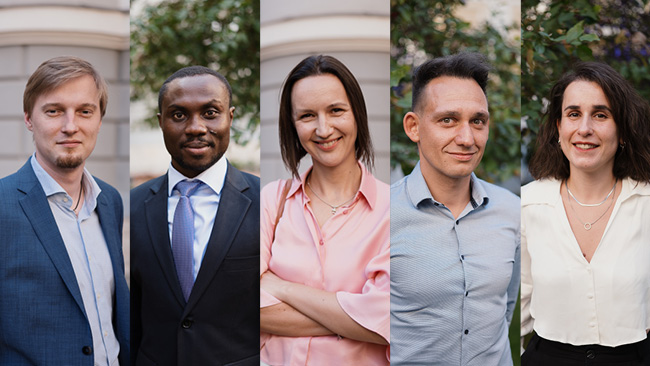
Funded project
89 000 €
2
Collected out of 89 000 €
Times donated
Five candidates were successful in the annual competition to attract and retain young researchers, which has been organised since 2020 by the Vilnius University (VU) Foundation: four researchers are co-funded by the return on investment of the VU Endowment Fund, and one researcher is co-funded by the VU Foundation partner, the philanthropic Marius Jakulis Jason (MJJ) Foundation.
Talented researchers who won the competition: Dr Ieva Bisigirskaitė (VU Faculty of Philology), Dr Eric Banan-Mwine Daliri (VU Life Sciences Center), Dr Laurynas Dagys, Dr Dimitra Ladika and Dr Gordon Zyla (VU Faculty of Physics).
The budget for the 2024 competition is EUR 89 thousand. All researchers with international experience will receive a grant of between EUR 14 thousand and 30 thousand in additional funding to the remuneration of researchers paid by VU units.
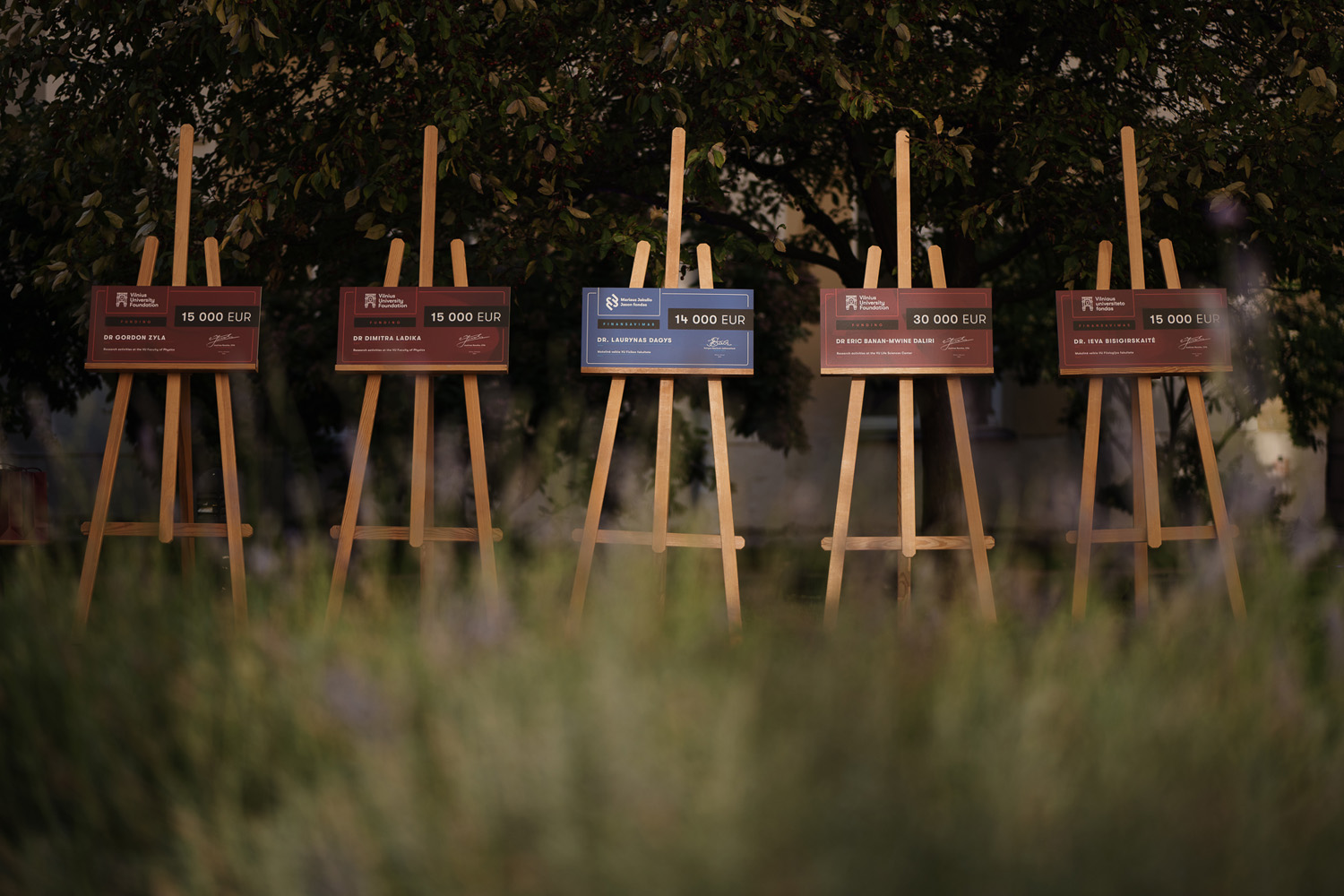
Dr Eric Banan-Mwine Daliri
Dr Eric Banan-Mwine Daliri studied Biochemistry at the University of Cape Coast in his native Ghana, successfully defended his PhD in Food Science and Biotechnology at Kangwon National University in South Korea, and completed a fellowship at the University of Roehampton in the United Kingdom.
His research interests include modulating the gut microbiota and developing functional foods, probiotics, prebiotics, and symbiotics. Dr Daliri has patented several scientific inventions and plans to carry out research at VU on solid-phase, precision fermentation, and the computer-aided discovery of potential drug substances.
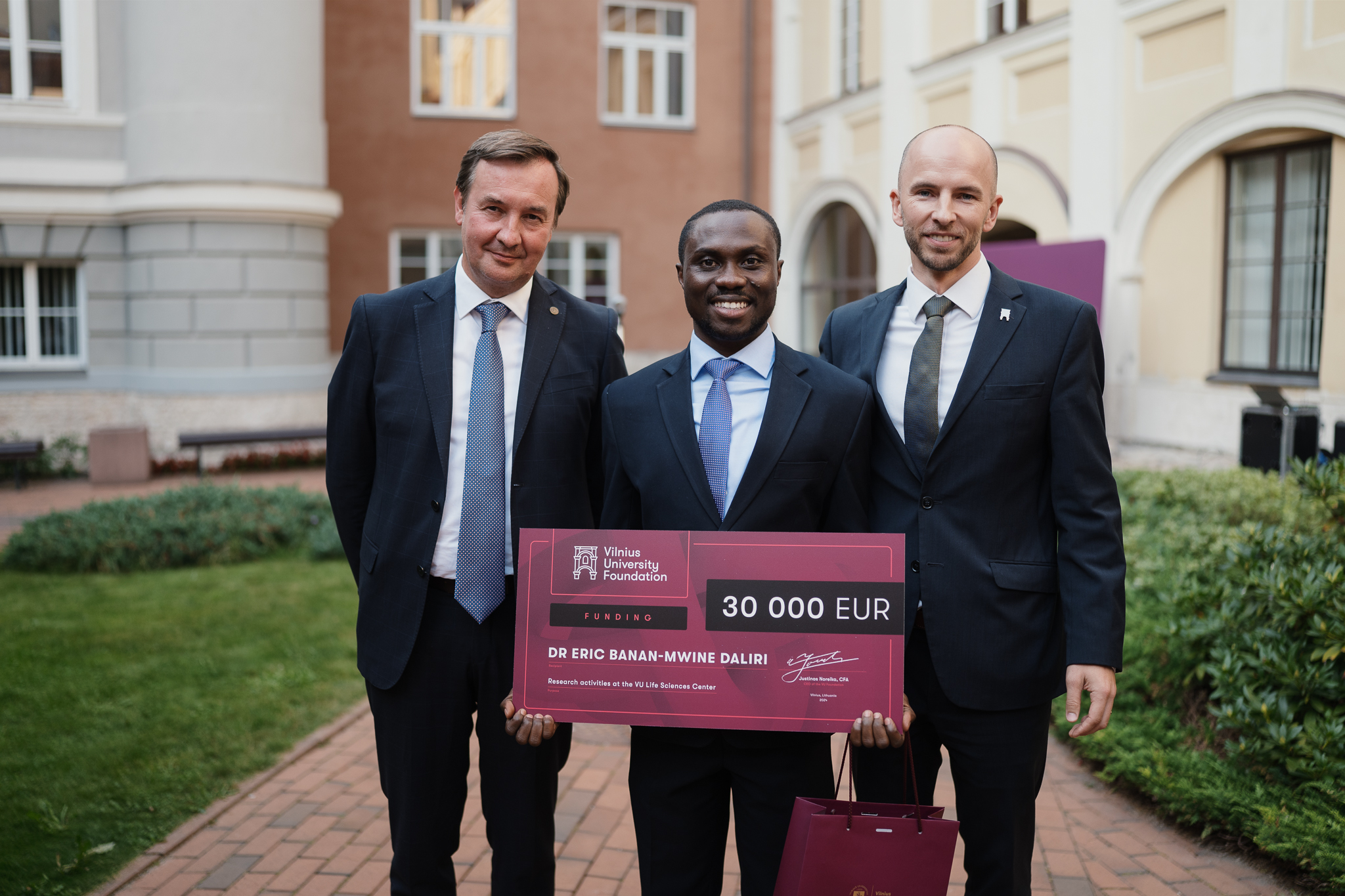
Dr Dimitra Ladika and Dr Gordon Zyla
Candidates from the VU Faculty of Physics, Dr Dimitra Ladika and Dr Gordon Zyla, will strengthen the research of the VU Centre of Excellence for Advanced Light Technologies, which will lead to prestigious funding for the VU Laser Research Center and provide a basis for expanding collaborations in Europe and beyond.
Dr Dimitra Ladika completed her bachelor studies at the University of Patras and both her master and doctoral studies at the University of Crete in Greece. In 2023, the researcher won a Laserlab-Europe grant for a fellowship at the VU Centre of Excellence for Advanced Light Technologies, where she established strong relations with the Laser Research Center of the VU Faculty of Physics. Dr D. Ladika currently works at the Institute of Electronic Structure and Laser of the Foundation for Research and Technology-Hellas (IESL-FORTH) in Greece.

Dr Gordon Zyla completed his bachelor’s, master’s, and doctoral studies at Ruhr University in Bochum, Germany, and conducted PhD research at the University of Nebraska-Lincoln, USA. He received a Maria Skłodowska-Curie grant and funding through the Feodor Lynen Research Fellowship from the Alexander von Humboldt Foundation. Dr G. Zyla currently works at the Institute of Electronic Structure and Laser of the Foundation for Research and Technology-Hellas (IESL-FORTH) in Greece.
Dr Ladika and Dr Zyla plan to work on the same research project in the Laser Nanophotonics Laboratory, focusing on optically active materials for advanced engineering using laser 3D lithography at the micro- and nanoscale.
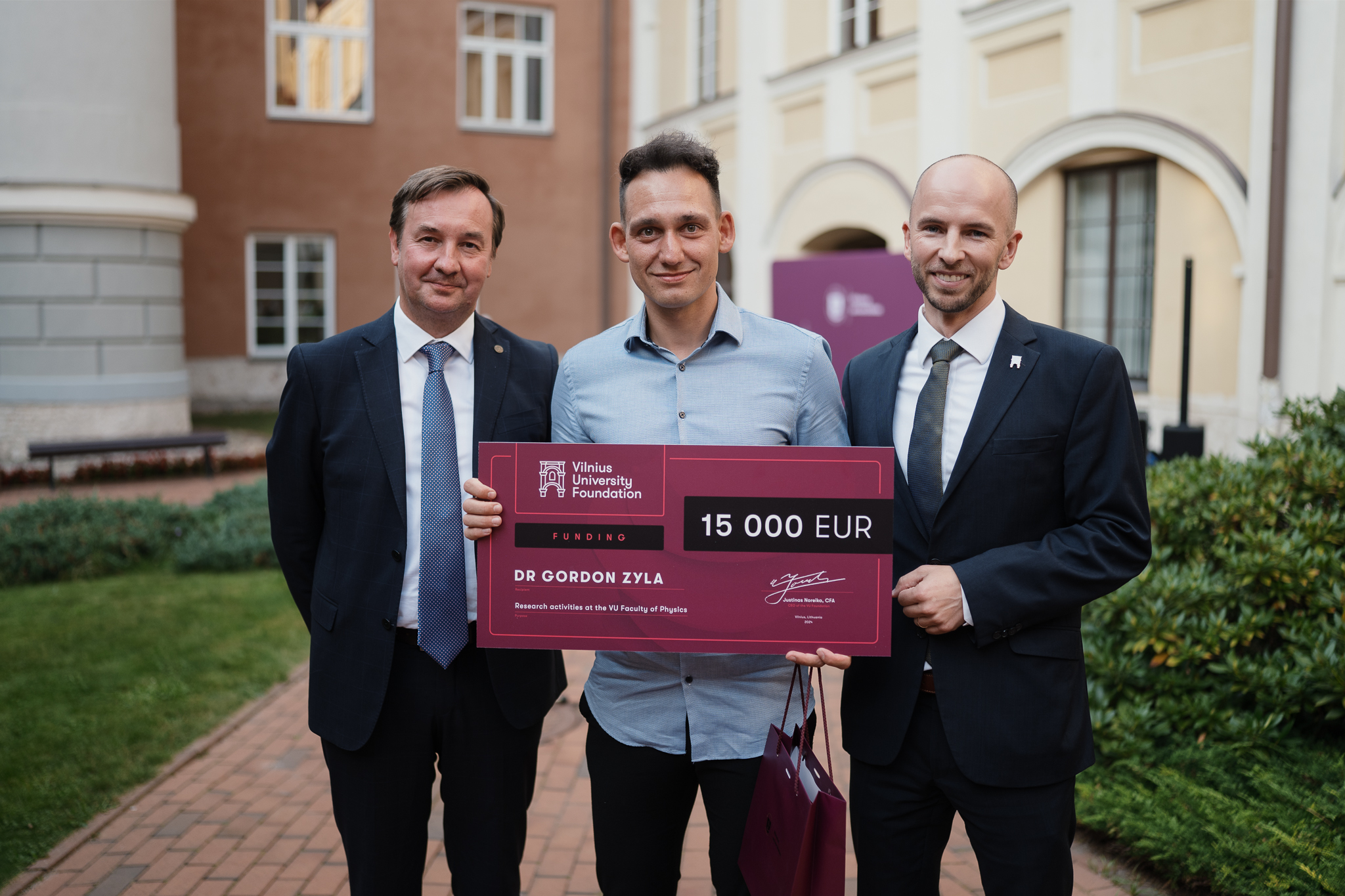
Dr Ieva Bisigirskaitė
A candidate from the VU Faculty of Philology, Dr Ieva Bisigirskaitė, completed her bachelor studies at the University of Wales, and her master studies at Swansea University in the United Kingdom. She received her PhD in Philology from the University of Zurich, Switzerland.
Dr Bisigirskaitė’s research field covers gender studies, maternity studies, postfeminist theory, postcolonial theory, narrative studies, sociolinguistics, etc. Together with colleagues from Södertörn University, Sweden, she is working on a research project on “Maternity in time of ‘traditional values’ and femonationalism”.
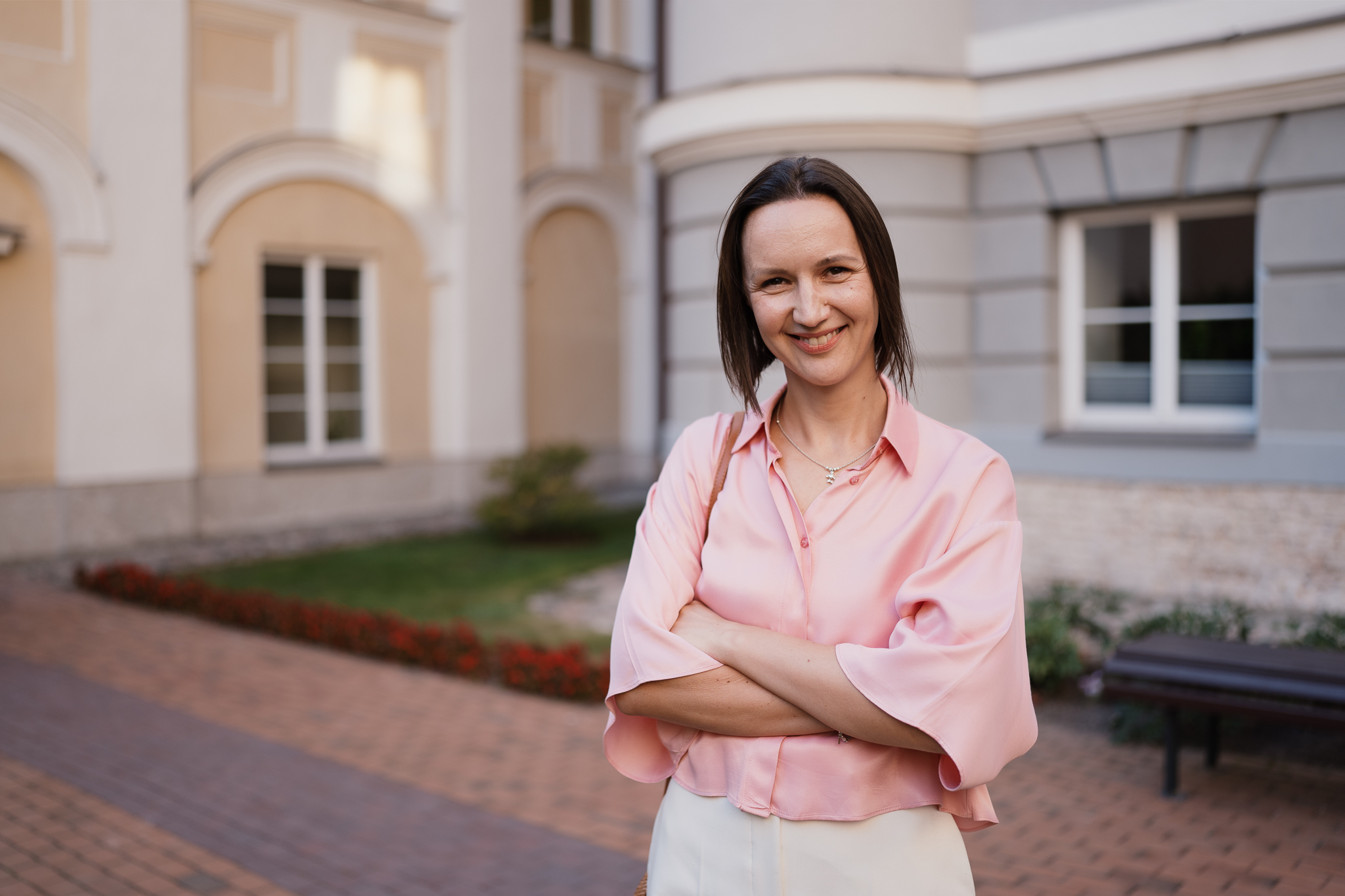
Dr Laurynas Dagys
Dr Laurynas Dagys, a researcher co-funded by the MJJ Foundation, graduated in Physics and Natural Sciences from Vilnius University and completed fellowships at the Darmstadt University of Technology, Johannes Gutenberg University, the Max Planck Institute in Germany, the University of California in the USA, and the University of Southampton in the United Kingdom.
The researcher, who was awarded the Erwin Schrödinger’s Prize by the Helmholtz Association in 2021, is working on nuclear magnetic resonance (NMR) spectrometry research that could lead to applications in fundamental materials science and cancer diagnostics.
